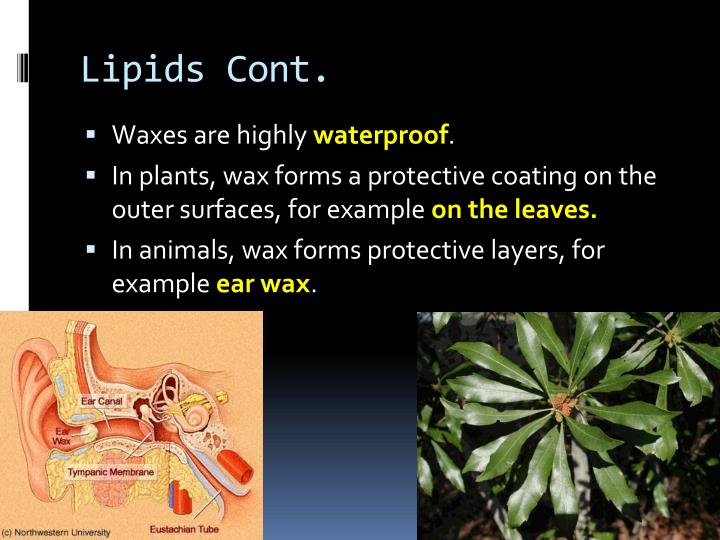Featured
- Get link
- X
- Other Apps
Why Are Lipids Waterproof
Why Are Lipids Waterproof. The plasma membrane is made up of numerous phospholipids. The vitamins are organic molecules required in low concentration for the proper functioning of the body.

They are insoluble in water so they can act as waterproof cuticles to conserve water in. As new scientist reports, we know that the waterproof barrier is found in a thin layer of fat found between the outermost layers of skin cells. They are combined using ester bonds.
Lipids Are Biological Molecules Such As Fats, Oils, Phospholipids And Steroids.
Lipids are fats, oils, waxes, hormones, and steroids. Because they are hydrophobic, they can form a coating that repels water. Are lipids nonpolar or polar?
Is Water Proofing A Function Of Lipids?
This feature of lipids allows our bodies to use them as waterproof barriers and as biological membranes. Waxes function to provide a waterproof coating on a surface. Lipids are the naturally taking place hydrophobic molecules.
Lipids Perform Many Different Functions In A Cell.
The structure of phospholipids is very important to their function. This is why fats contain more calories (a measure of energy) than sugars do. Waxes function to provide a waterproof coating on a surface.
The Structure Of Phospholipids Is Very Important To Their Function.
This is why fats contain more calories (a measure of energy) than sugars do. They send and serve as messages. Lipids are waterproof because it is hydrophobic.
Because They Are Hydrophobic, They Can Form A Coating That Repels Water.
The cell membrane contains a bilayer of phospholipids with hydrophilic heads outside the membrane while hydrophobic heads facing inwards. As new scientist reports, we know that the waterproof barrier is found in a thin layer of fat found between the outermost layers of skin cells. Waterbirds use waxes to keep their feathers dry.
Comments
Post a Comment